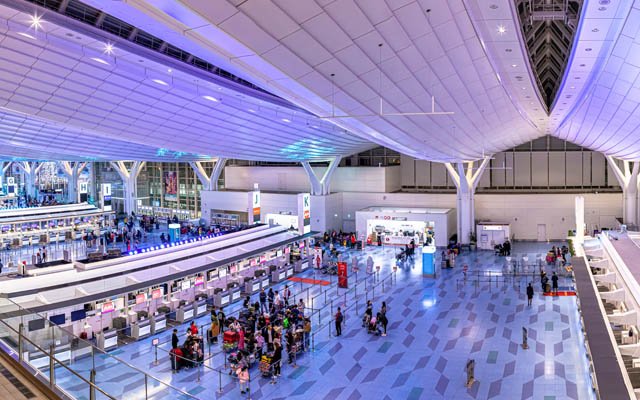Travel advisors tend to spend July and August working on winter holiday bookings. But this year, they may be spending July and August working on July and August bookings.
In short: Close-in booking is shaping up to be the travel trend of the summer.
Royal Caribbean Group last week credited an “acceleration” in close-in bookings for pushing second-quarter earnings above expectations. The biggest travel agency on the Travel Weekly Power List, Booking Holdings, said that booking windows shortened during its second quarter, while Caesars Entertainment CEO Thomas Reeg said during the company’s July 29 earnings call that booking windows in Las Vegas were “about as short as I’ve seen.”
Classic Vacations CEO Melissa Krueger said on The Folo by Travel Weekly podcast on July 13 that the packager has observed “a major uptick” in close-in bookings this summer.
“What used to be an average 90- to 100-day booking window has shifted to travelers confirming plans maybe just 20 to 45 days out,” she said.
That jibes with preliminary data from a Travel Weekly reader survey fielded in late July, which found that 36% of respondents were seeing a higher-than-usual rate of last-minute bookings. According to the survey of about 200 travel advisors, 27.6% of respondents said one to three months was the most common booking window this summer. Only 9.5% said that booking window was the most common at this time last year.
Melissa Krueger
Krueger said on the podcast that in late June, about 40% of “options” — travelers who had signaled their intent to travel — were still looking to book for July, August and early September.
“That’s pretty significant, especially when you start thinking about Europe,” she said. “Europe used to be a trip you used to plan the minute you could start booking air.” She added, “Business isn’t slowing. We’re just seeing more bookings for summer travel even now.”
American Marketing Group (AMG) companies Travelsavers and the Network of Entrepreneurs Selling Travel started seeing the trend take hold in April. In a survey of affiliate agencies fielded in April and May, AMG found that 20% of respondents were seeing last-minute bookings at a rate higher than usual.
Krueger said that a mix of economic uncertainty and geopolitical concerns appeared to be driving the trend.
“Being in the global travel hospitality business, we rely on certainty in these areas, and as human beings we desire certainty,” she said. “And so people are holding space, they’re watching, they’re engaged in their travel plans, but … they’re making that final decision when they feel confident. And when they do, they want to move quickly.”
Royal Caribbean Group CEO Jason Liberty mostly attributed the close-in booking trend to the habits of younger consumers. During its second-quarter earnings call on July 29, Liberty said that 70% of millennials and younger are more likely to book closer to the date of the cruise, “reflecting a desire for spontaneity and flexibility.”
This was echoed by Tracey Ryniec, a stock strategist at Zacks Investment Research, who said that with those generations representing half of Royal Caribbean customers, it is prompting a shift in consumer behavior.
“Millennials are more spontaneous and last-minute,” she said.
Royal Caribbean executives also said its product mix, specifically an increase in shorter sailings, had prompted more close-in demand.
“We call it the big weekend,” said Michael Bayley, president of Royal Caribbean International. “People just decide later on to jump on board and have a great time.”
But UBS analyst Robin Farley speculated that the close-in acceleration at Royal Caribbean was related to overall economic conditions and “could just suggest that since April, consumers waited till closer in to departure to book, given the volatility in the macro outlook.”
Booking Holdings CFO Ewout Steenbergen also attributed the close-in bookings to consumer sentiment.
“This may suggest that U.S. consumers are being more careful with spending in the current economic environment,” he said.
Despite the uncertainty, Krueger said that long-term trends are promising: The same people booking close-in trips this summer are also making plans for 2026 in advance.
“That tells me the consumer says, ‘We know everything is going to be fine,'” she said.
Teri West and Christina Jelski contributed to this report.





































You must be logged in to post a comment Login